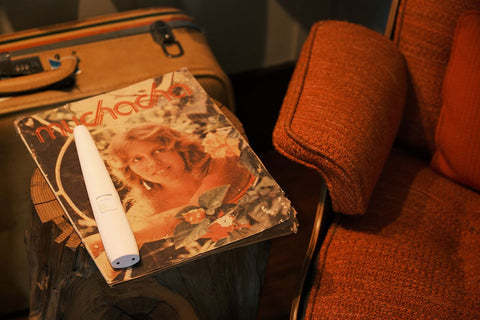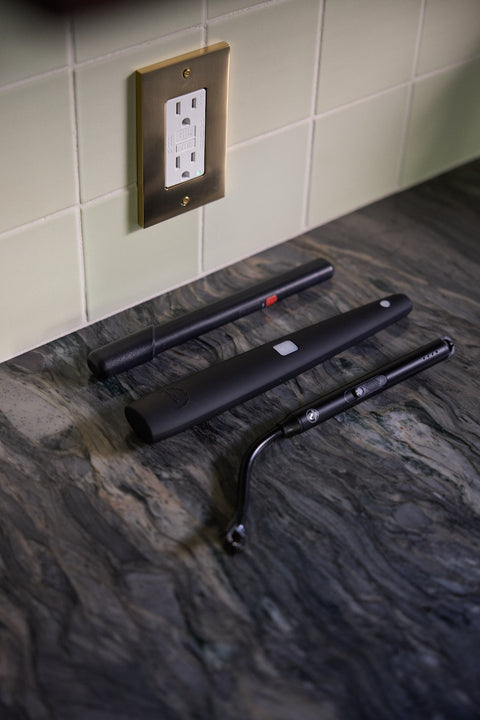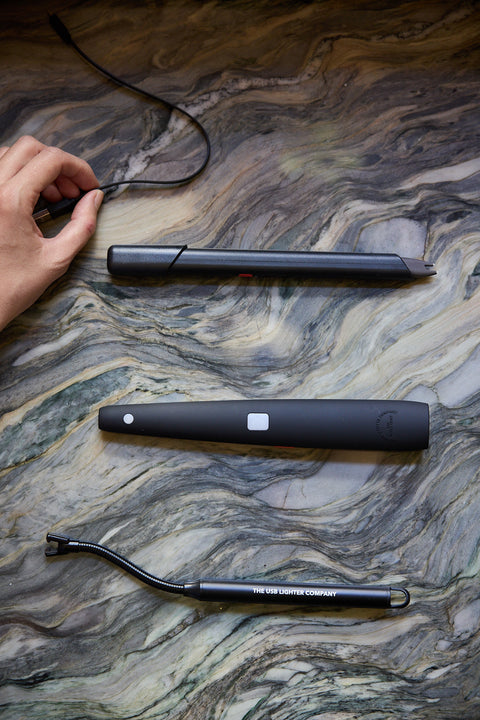
Have you ever been outside on a chilly day and tried to light a flame with your lighter, only to find it completely unresponsive? It can be extremely frustrating, especially when you’re desperate for fire! But why is it that our trusty lighters don't work in the cold?
The answer lies in the science of liquids and gases: when temperatures dip below freezing, the pressure of the fuel inside decreases significantly. This lack of pressure means that the trigger is not powerful enough to force fuel through the valves and onto the flint, leading to a failed ignition.
Awkward run-ins with sharp rocks aside, this is another everyday example that reminds us just how finicky nature can be!
What Is Cold Temperature?
When temperatures reach lower levels, the lighter fluid becomes more viscous and difficult to vaporize. This is because cold temperatures cause molecules to move slower, meaning that it takes longer for them to ignite in a flame.
As the temperature decreases, the lighter fuel evaporates less quickly and has difficulty producing enough vapor pressure to create a flame. Additionally, cold temperatures can cause the lighter to cool down and become more brittle. The seals that keep it air-tight are more likely to break, meaning that no flame will occur.
The average temperature for a standard lighter to work is about 32°F (0°C). In colder climates such as Antarctica, temperatures can reach -100°F (-73°C). At these temperatures, it is almost impossible for a lighter to work. To ignite, the fuel must be able to vaporize and mix with oxygen, which becomes increasingly difficult as temperatures drop.
Overview Of Problem: Lighters Not Working In Cold Weather
It can be incredibly frustrating when your lighter fails to ignite in cold weather. This is a common problem for smokers, campers, and outdoorsmen alike. The reason behind this lies in the design of lighters and how they are affected by extreme temperatures.
The majority of lighters use butane gas as a fuel source. Butane is an incredibly flammable substance and when it comes into contact with a spark, it ignites quickly. However, at temperatures below 32°F (0°C), the butane gas becomes less volatile and more difficult to ignite. This is why lighters often don’t work in cold weather.
The solution to this problem lies in the design of lighters. Some lighters are designed with a built-in catalytic heater which helps to keep the fuel warm enough for it to ignite more easily. This type of lighter is more likely to work in cold weather, as the heat from the catalytic heater prevents the fuel from cooling down too quickly.
It is also important to use lighters correctly to ensure that they can ignite in any weather conditions. This means not pressing the lighter down for too long and making sure to keep it away from windy areas, as the cold air can affect the fuel.
Explanation Of Why This Occurs
When temperatures drop, the air pressure inside a lighter decreases. Since lighters rely on air pressure to create sparks and flames, they have difficulty working in cold temperatures. As the temperature drops, it becomes difficult for the lighter to generate enough air pressure to make a flame. Additionally, low temperatures can cause the fuel inside a lighter to thicken, making it difficult for the flame to propagate.
The colder temperature also affects the lighter’s flint component, which is responsible for striking sparks that cause the fuel to ignite. The lower temperature makes it more difficult for the spark to make contact with the fuel, and thus a flame may not be produced as easily as usual.
To ensure that a lighter works in cold temperatures, it is important to store them properly by keeping them in warmer places. Additionally, lighters should be filled with fuel frequently and maintained regularly to keep them working properly. By following these simple steps, you can help ensure that your lighter will work even in the coldest of temperatures.
Tips For Using Lighters In The Cold
When temperatures fall below freezing, the gas in lighters stops flowing and the fuel becomes too thick for the flame to ignite properly. This means that you will need to take extra precautions when using your lighter in cold weather.
A. Store Lighters In A Warm Place
It is important to store your lighters in a warm place so that the gas inside doesn't freeze. This will ensure that it remains at a temperature where it can ignite properly, and also keep its components from freezing and cracking.
B.Use Alternative Ignition Sources
For extended use outdoors in cold weather, you may want to consider using alternative ignition sources such as matches or fire starters. These are usually better suited for cold weather and will be less likely to fail due to the freezing temperatures.
C. Pre-Heat Your Lighter
Pre-heating your lighter can help prevent it from freezing up and make it easier to ignite in cold temperatures. To do this, you can either hold the lighter in your hand for a few minutes to warm it up or use a portable camping stove to gently pre-heat the lighter.
D. Carry Extra Fuel
Finally, when using lighters in cold weather it is important to carry around extra fuel with you, as low temperatures can cause the gas to evaporate more quickly. This will ensure that you always have enough fuel when you need it and can help prevent your lighter from failing in cold weather.
Overall, using lighters in the cold can be tricky but with the right precautions, it doesn't have to be impossible. By following these tips, you should be able to get your lighter to work in even the coldest temperatures.
Final Words:
Cold temperatures can be a real hindrance when trying to light something with a lighter. This is because cold air reduces the pressure inside the flame, making it difficult for fuel and oxygen to mix properly to create a sustained burn. By keeping these tips in mind, one can ensure that they will get reliable performance from their USB lighter regardless of the temperature.





